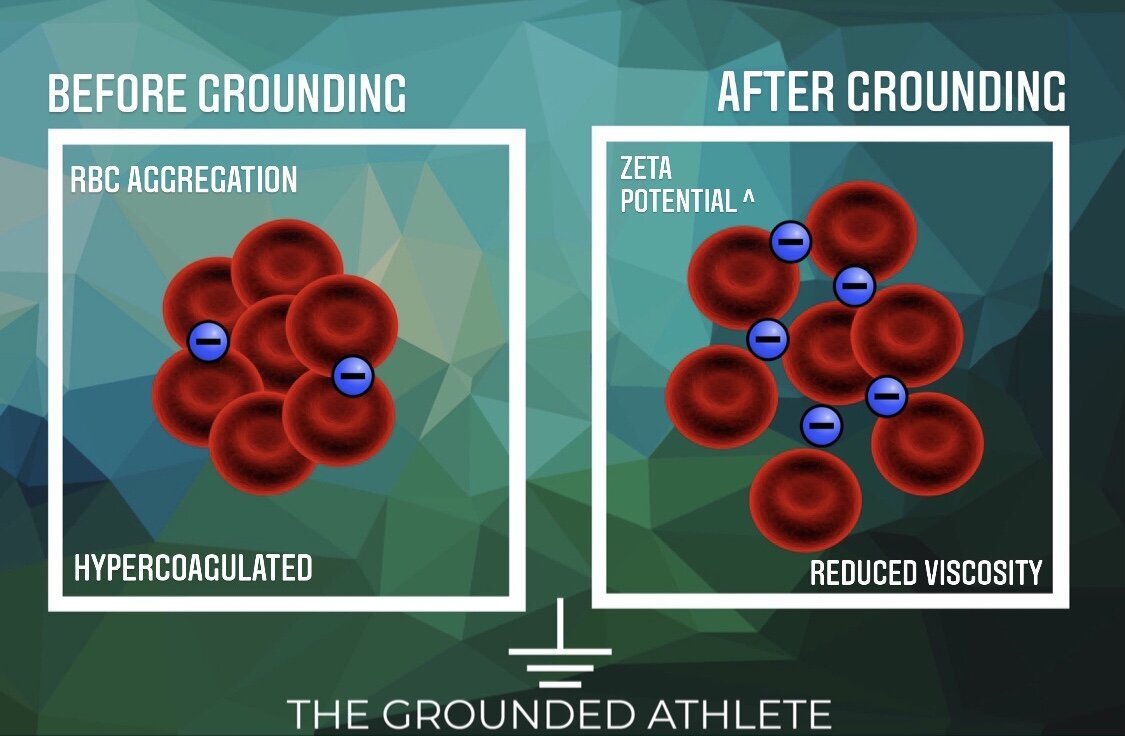SHORT - Zeta Potential
When it comes to grounding, you may have seen images of red blood cells suspended under a dark field microscope floating around. It’s probably the most popular as far as grounding research goes. Here’s some context. What’s being examined is zeta potential.
Zeta potential is a fundamental aspect of colloidal science that pertains to the electrical charge on the surface of particles suspended in a liquid.
The measurement of zeta potential is vital in several fields, including pharmaceuticals, biotechnology, and materials science. Gives good info about the stability and behavior of colloidal suspensions.
Dark field microscopy is an effective tool for measuring zeta potential, as it allows for the real-time visualization and analysis of particle behavior.
Long story short you get an increase in zeta potential (when grounded) which is the negative surface charge of erythrocytes. Lots of repulsive forces.
Ever heard of Coulomb's Law? It's a big deal in physics and states that charged particles with the same charge will repel each other. It helps explain electric fields and interactions and is super important to understand how charged particles behave.
The most immediate implications of this is a reduction in blood viscosity.
Blood viscosity is a crucial aspect of cardiovascular health that pertains to the thickness of blood. Factors such as age, diet, physical activity, and hydration levels can influence blood viscosity. Elevated blood viscosity is associated with an increased risk of cardiovascular disease and other health complications.
Hypertension, commonly known as high blood pressure, is a condition in which the blood pressure in the arteries is elevated, causing strain on the heart and blood vessels. Elevated blood viscosity has been shown to contribute to the development of hypertension.
Thick blood flow, a result of elevated blood viscosity, is more resistant to flow, leading to increased blood pressure and strain on the cardiovascular system. Additionally, elevated blood viscosity leads to an increase in red blood cell aggregation, which can obstruct blood flow and further exacerbate hypertension.
This is nature’s best alternative to warfarin.
More in Earth & Heart.



